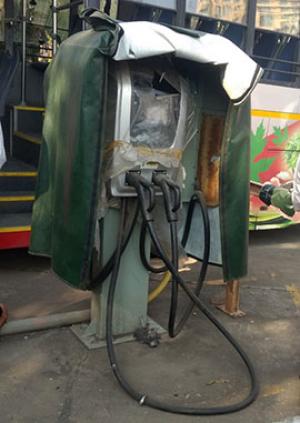CSE lauds electric bus programme in Kolkata; says it can be a game changer for clean air agenda
- The new lot of electric buses flagged off today by West Bengal Chief Minister Mamata Banerjee in Kolkata is a big leap towards zero emissions pathway
- This needs sustained planning of charging infrastructure, route planning, deployment strategy and service delivery for effective impact
- Strong public transport culture and short travel distances in Kolkata are an opportunity for scaling up of electric mobility and achieving zero emissions to reduce toxic and harmful exposure to air pollution
- 22 per cent of daily travel trips in Kolkata are already electric and zero-emissions; if buses, autos and taxis are electrified as well, Kolkata can lead the zero emission pathway in the country
 |
New Delhi, February 20, 2019: Centre for Science and Environment (CSE), the New Delhi-based research and advocacy body,has lauded the effort of the West Bengal government forits proactive move to phase in the electric bus programme. Under the programme, a new lot of electric buses were launched in Kolkata today by the West Bengal Chief Minister Mamata Banerjee -- CSE said this initiative could prove to be a game changer for acity facing a severe air pollution and health crisis.
While highlighting the importance of this initiative Anumita Roychowdhury, Executive Director, Research and Advocacy, CSE said, “Kolkata has a much bigger opportunity than most other metro cities in India to phase in zero emissions mobility quicker because of its inherent advantages of very strong public transport culture and short average travel distances – this makes the city most suitable for electric vehicles.”
Already, as much as 89 per cent of daily travel trips are made by public transport in the city. Electric buses will help to further improve the glamour and attractiveness of the bus system and help it retain and increase ridership.
It is important to note that as Kolkata has already implemented the Metro, Tram, and Suburban and Circular rail systems,as much as 22 per cent of the daily travel trips are already electric and zero-emissions. If the bus electrification is also taken forward, this can have a significant impact. All public and private buses, mini buses and chartered buses together carry 56 per cent of the daily travel trips in Kolkata. If this programme is further complemented by electrification ofauto and taxi segments that carry another 17 per cent of the daily travel trips,Kolkata can lead the zero emission pathway in the country.
This strategy needs serious attention and support as Kolkata is experiencing very high pollution and exposure levels, especially during winters. Vehicles are one of the major contributors to air pollution in the city. As Kolkata does not have easy access to other clean fuels for transport, its dependence on toxic diesel is high – leading to serious public health consequences.
Even though Bharat Stage VI emissions standards will be introduced in Kolkata next year, managing real world emissions from the diesel fleet will continue to remain a challenge. In contrast, electric vehicles are easier to operate and maintain and have substantially lower running costs. Says Roychowdhury: “The faster Kolkata moves away from internal combustion engines in the targeted and high mileage segments, the more health benefits will be ensured in the city.”
The way forward
With electric buses coming into the city, it is important to focus on the deployment strategy to leverage the initiative for longer-term air quality and health benefits as well as energy savings:
- Plan bus route clusters for electrification and deployment of buses.
- Provide charging infrastructure in depots and opportunity charging as needed.
- Set up a battery management system.
- Set up systems for monitoring of performance of buses for feedback and further improvement.
- Integrate buses and electric feeders with other public transport systems.
- Introduce technical capacity building programmes for operating the electric bus fleet.
- Simultaneously, plan and implement a larger plan for charging infrastructure, and fiscal incentives to target other vehicle segments as well.
For more on the work done by CSE on mobility, air pollution and electric vehicles, please connect with Souparno Banerjee of The CSE Media Resource Centre, 9910864339 / souparno@cseindia.org.
Share this article